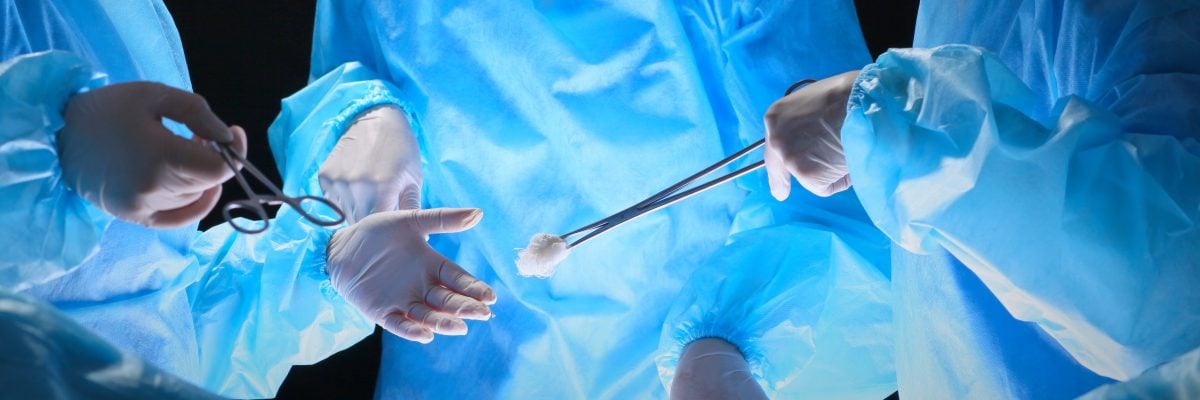
Organ donation is a miracle of modern medicine, offering seriously ill patients a chance at new life and health. It also offers donors an opportunity to make a sacrificial self-gift. In an address to the International Congress on Transplants in 2000, Pope John Paul II emphasized what he had said in a similar address in 1991: “The decision to offer without reward a part of one’s own body for the health and well-being of another person” is “a genuine act of love.” Because the human is a substantial union of body and soul, donors give something of themselves, not mere organs and tissues.
The Church generally affirms the morality of organ donation. But there are principles we must always keep in mind.
The ethics of organ donation depends on two criteria: 1) whether the patient or the family gives free and informed consent to organ procurement and 2) whether the patient is in fact deceased when vital organs are removed. (The willing donation by the living of non-vital organs, such as one kidney; a lung; or a portion of the liver, the pancreas, or intestines is always permissible.)
The desire to offer one’s organs after death to someone diagnosed with organ failure is noble and should be honored. Here we run into the critical definition that affects criterion number two: the definition of death.
All determinations of death occur after the fact. If some organs are procured too long after the heart stops beating, they are no longer usable because the blood supply to them has ceased. Therefore, the question shifts to a very difficult one, the one raised by the first organ transplant in Cape Town, South Africa in 1967: can organs be removed before life support is stopped? An ethical standard called the Dead Donor Rule (DDR) states the obvious edict that vital organs should be removed only from a dead body and not from a living person.
In optimal circumstances, the ethical path is clear. The patient has suffered a life-ending illness or injury, such as head trauma or brain aneurysm. He has been put on artificial life support to keep the heart beating and oxygenated blood flowing to the organs, but the medical team can clearly determine that brain death has occurred because there is no brain activity, the patient cannot breathe on his own, and no recovery is possible. With full prior written consent of the patient and the family, the death of the donor is declared. The hospital can then notify the organization that collects the organs, a database of patients awaiting transplant can be searched, and provisions can be made to maintain the organs on artificial support while they are transported to the sick patient or patient in need of them. The transplant is successful, and a fatally sick person is cured by the charitable donation of a dying person.
But note: everything in this process is time-critical down to the minute. Hearts and lungs can survive outside the body for only four to six hours, livers up to twelve hours, intestines sixteen, pancreases eighteen, and kidneys thirty-six. It is not hard to see the ethical conflict between certainty of death and desire to harvest transplantable organs.
Robert D. Truog, director of the Harvard Center for Bioethics, is known for exploring the uncomfortable corners of this debate. He advocates for a restructuring of end-of-life ethics and argues that in certain cases, it may be ethical to remove the organs before a donor is definitionally dead so the organs may be better preserved for transplant. He judges that procedures such as removing organs while the heart is still beating are ethical if death is imminent.
In a perspective published in 2012 in the New England Journal of Medicine, Truog describes the case of a young girl whose parents wanted to donate her organs after she suffered severe brain damage in an accident, reminiscent of the original Cape Town case of 1957. The girl was on life support. Plans were made to withdraw life support and to procure her organs after death occurred, in compliance with the Dead Donor Rule.
However, the girl died too slowly. The organs were consequently not viable for transplant, and the parents’ wish for organ donation was not honored. The parents questioned why the organs could not have been removed while they were still in a condition to help another sick person, even if retrieving them would have meant hastening the girl’s imminent death. Truog favors language that allows for a case such as this to be conducted according to the procedure described by the parents—that is, to remove organs before death.
In a hard case like this, it is important to be grounded in Church teaching, particularly the universal edict not to kill an innocent human. Think forward. Should this language about imminent death be accommodated and the Dead Donor Rule abandoned, guidelines and policies can be established that favor the harvesting of organs over the dignity of human life. As distraught as a family may be that a loved one cannot donate organs in death, the truth remains: the value of a person’s life does not depend on organ donation.
John Paul II’s 2000 address to the International Congress on Transplants echoes what Pope Pius XII stated more than forty years prior regarding the definition of death. Death is the “total disintegration of that unitary and integrated whole that is the personal self.” Death is the separation of the soul from the body. Regarding the medical definition, whether the traditional cardio-respiratory signs or the neurological signs, John Paul again affirmed his predecessor and emphatically asserted that “the Church does not make technical decisions.”
The Church is concerned with human dignity. If there is “moral certainty” that death has occurred before organ procurement, then it is ethical if consent has been given. That is the guiding principle in both the theological and medical determination of death: moral certainty.
We remember too that future immortality is as certain as mortal death. Even amid suffering, Christians hope for the promised resurrection. This hope fills the believer with “an extraordinary capacity to trust fully in the plan of God” (Evangelium Vitae 67).
For more insights into the life-and-death questions surrounding science, medicine, and technology, check out Stacy’s new booklet, 20 Answers: Bioethics.



